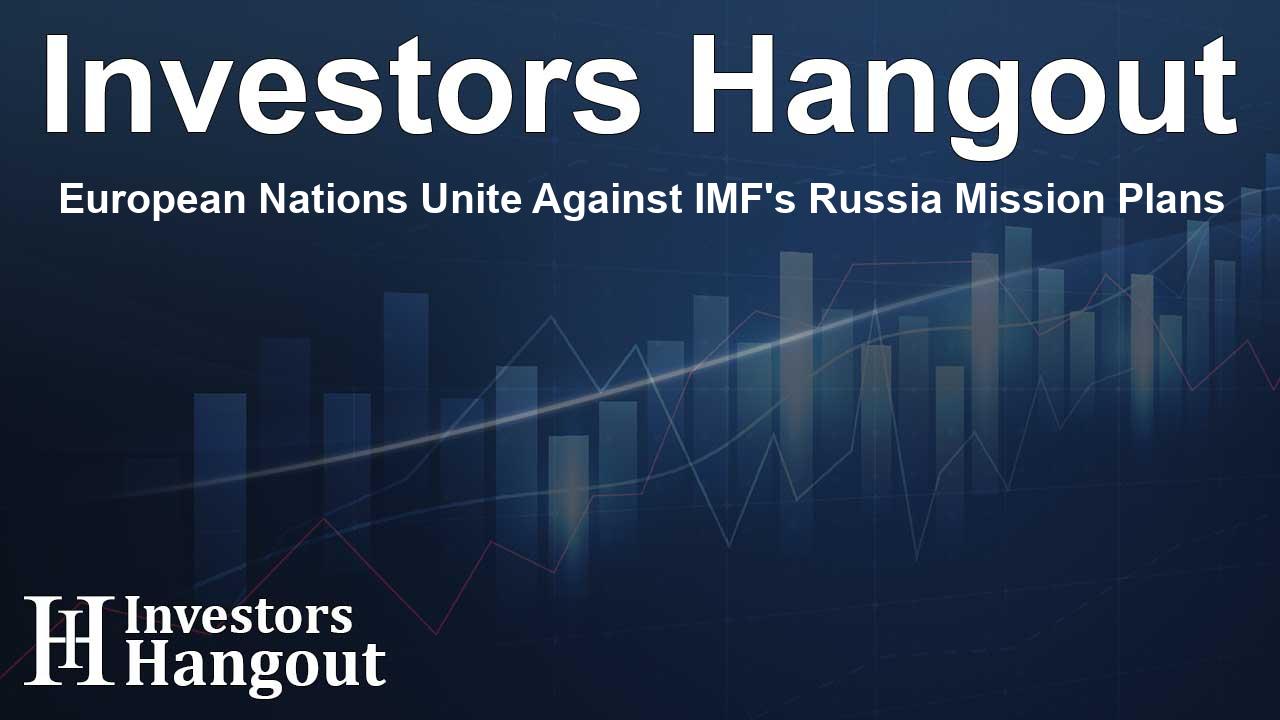European Nations Unite Against IMF's Russia Mission Plans

European Countries Protest IMF's Plan to Resume Missions
Recently, a coalition of nine European nations voiced their strong objections against the International Monetary Fund's (IMF) intentions to re-engage with Russia. The diplomatic tensions stem from Russia's ongoing actions in Ukraine, which have raised serious ethical questions regarding the IMF's planned consultations.
The Background of IMF's Involvement
The IMF is traditionally known to conduct annual consultations with its member countries. However, in light of the tumultuous geopolitical climate following Russia's invasion of Ukraine in February 2022, the IMF halted these operations with Russia. This decision was in line with the international community's response to Russia's aggression.
Protests from European Finance Ministers
In a unified letter addressed to Kristalina Georgieva, the head of the IMF, the finance ministers from Lithuania, Latvia, Estonia, Finland, Sweden, Iceland, Denmark, Norway, and Poland expressed their discontent. They conveyed their concerns regarding the potential resumption of dialogue with a nation they view as an aggressor.
Concerns About Russia's Influence
The letter raises critical questions about the implications of offering IMF consultations to Russia. Questions were posed about the nature of recommendations the IMF would provide, focusing particularly on whether the guidance would cater to managing an economy exposed by war.
Trust Issues with the IMF's Efforts
The finance ministers voiced fears that resuming operations with Russia might undermine donor countries' trust in the IMF. This erosion of confidence could potentially affect support for Ukraine through various IMF programs. A senior eurozone official pointed out that donors may choose to direct their support to other financial institutions, such as the World Bank or the European Bank for Reconstruction and Development.
Censorship Concerns
Concerns were also raised regarding the accuracy of the data provided by Russia to the IMF. The ministers posited that any information submitted might be manipulated to portray a misleading picture of economic resilience in the face of Western sanctions. They warned that such a scenario would skew the IMF's evaluations, resulting in flawed assessments.
Potential Propaganda for Russia
The letter further emphasized that any IMF missions could unintentionally aid Russia's propaganda efforts, thereby damaging the institution's reputation in the eyes of the global community. The ministers implored the IMF to reconsider its position and to align its actions with the principles set out in the UN Charter.
Call for International Financial Institutions to Act
The nine European countries did not hold back in urging all international financial entities, including the IMF, to distance themselves from cooperations involving Russia while the war continues. Their stance advocates for a united front against Russia's actions, reinforcing the moral standpoint that financial assistance should not be given to an aggressor state.
The IMF's Stance
In response to the backlash, the IMF reiterated that their planned consultations with Russia are part of their regular obligations, emphasizing that these protocols apply to all member nations. However, the contrasting opinions from European nations highlight the delicate balance the IMF must maintain in the international financial landscape.
Historical Context of IMF Missions to Russia
The last time the IMF conducted an annual mission in Russia was back in November 2019, prior to the global disruption caused by the COVID-19 pandemic. Since the onset of the war in Ukraine, no IMF missions have been allowed into Russia, reflecting the significant impact of geopolitical strife on international finance.
Future Implications for the IMF
The ongoing debate about the IMF's engagement with Russia showcases the challenges that arise when financial and political landscapes collide. Although efforts to expel Russia from the IMF were considered following the Ukraine invasion, such actions were complicated by hesitations from other prominent member nations, particularly those with substantial voting power such as China and India.
Frequently Asked Questions
Why are European countries protesting IMF's mission to Russia?
They believe that resuming dialogue with an aggressor nation like Russia undermines the reputation of the IMF and could diminish support for Ukraine.
What actions has the IMF planned regarding Russia?
The IMF intends to restart online consultations and a delegation visit to meet Russian officials, which has sparked widespread opposition.
How might the IMF's consultations affect Ukraine?
Donor nations fear it could undermine confidence in the IMF, affecting financial support for Ukraine's initiatives.
What do the European countries fear about Russia's data?
They are concerned that any data submitted by Russia might be manipulated to falsely indicate economic stability, thereby impacting IMF assessments.
What is the historical context of IMF missions to Russia?
The last IMF mission to Russia took place in November 2019, and there have been no missions following the onset of the Ukraine war.
About The Author
Contact Dylan Bailey privately here. Or send an email with ATTN: Dylan Bailey as the subject to contact@investorshangout.com.
About Investors Hangout
Investors Hangout is a leading online stock forum for financial discussion and learning, offering a wide range of free tools and resources. It draws in traders of all levels, who exchange market knowledge, investigate trading tactics, and keep an eye on industry developments in real time. Featuring financial articles, stock message boards, quotes, charts, company profiles, and live news updates. Through cooperative learning and a wealth of informational resources, it helps users from novices creating their first portfolios to experts honing their techniques. Join Investors Hangout today: https://investorshangout.com/
The content of this article is based on factual, publicly available information and does not represent legal, financial, or investment advice. Investors Hangout does not offer financial advice, and the author is not a licensed financial advisor. Consult a qualified advisor before making any financial or investment decisions based on this article. This article should not be considered advice to purchase, sell, or hold any securities or other investments. If any of the material provided here is inaccurate, please contact us for corrections.
